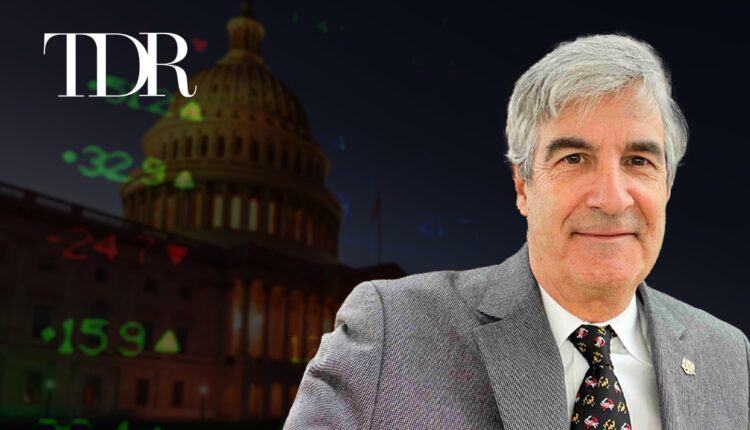
Cannabis Industry Reform: Insights from Don Murphy
The TDR Three Key Takeaways regarding Cannabis Industry Reform and Don Murphy:
- Political and public views on cannabis are increasingly aligning, says Don Murphy.
- Donald Trump’s stance on cannabis rescheduling remains doubtful, Murphy notes.
- Challenges in federal cannabis legalization are evident, says Murphy.
In yesterday’s episode of the “Trade to Black podcast, Don Murphy (Founder, American Cannabis Collective) gave an exclusive interview. The conversation surrounding cannabis has significantly shifted from its once-taboo status to becoming a topic of serious political and economic discussion.
The NCAA’s shift marks a significant step in normalizing cannabis use, especially in professional sports. Athletes like Ricky Williams, who faced severe backlash for their cannabis use, have long advocated for its benefits, particularly in managing pain, anxiety, and depression. This decision could pave the way for major professional leagues to reconsider their stance on cannabis, potentially leading to broader acceptance and advocacy within high-profile sports.
Murphy’s insights reveal a complex landscape where political motivations and public sentiment are increasingly aligning. As seen in the Republican primaries, candidates’ stances on cannabis can significantly influence their political fortunes. “The defeat of Bob Goode in Virginia and the victory of John Curtis in Utah highlights a growing acceptance even among conservative voters,” Murphy noted.
Despite these advances, the path to federal legalization remains fraught with challenges. The ongoing debates in Washington, particularly around the Safe Banking Act, underscore the complexity of passing comprehensive cannabis reform. The act, which aims to provide cannabis businesses with access to traditional banking services, has seen numerous delays. However, there is cautious optimism that it could be addressed in the upcoming lame-duck session, especially with the shifting political dynamics following the midterm elections. Murphy emphasized, “If the Senate’s going to change hands, you’ve got to get this thing done now. The chances of this happening in the next term diminish greatly if Republicans take over the Senate.”
The potential rescheduling of cannabis by the DEA also looms large. Currently classified as a Schedule I substance, cannabis is deemed to have no accepted medical use and a high potential for abuse. Rescheduling to Schedule III would recognize its medical benefits and ease some of the stringent regulations hampering research and business operations. However, this process faces significant bureaucratic and political hurdles, with various stakeholders, including law enforcement agencies, expressing reservations. Don Murphy expressed skepticism about Trump’s stance, stating, “Trump’s not going to do it if he wins. He knows people who use marijuana for medicine, and he was for the States Act when Cory Gardner had it.”
The economic impact of cannabis legalization cannot be overstated. States that have legalized cannabis for recreational use, like Colorado and California, have seen substantial tax revenue increases and job creation. However, ensuring that this burgeoning industry benefits all communities equitably is crucial. Don Murphy’s criticism of Maryland’s equity provisions, which paradoxically allow affluent individuals to qualify for equity licenses, highlights the need for more thoughtful and effective policies that truly support marginalized communities disproportionately affected by past cannabis prohibition. “The equity provisions that are in there are so twisted that this white bloomer Republican qualifies for an equity license. It just makes no sense,” Murphy remarked.
As we approach critical political junctures, it is essential to maintain a balanced and informed debate on cannabis. While political opportunism can drive some legislative changes, genuine progress requires policymakers to consider the scientific evidence, economic benefits, and social justice implications comprehensively. Murphy advocates for a free market approach, “I believe in a free market system. If you’re a citizen of good standing in this state and you want to sell cannabis, get a license like you’re opening a barbershop or a vegetable truck.”
The cannabis industry is undergoing transformational change. The intersection of sports, politics, and economic potential creates a unique opportunity to reshape public perceptions and legislative frameworks. By fostering informed discussions and advocating for balanced policies, we can ensure that the cannabis industry develops in a way that benefits society as a whole. Want to be updated on Cannabis, AI, Small Cap, and Crypto? Subscribe to our Daily Baked in Newsletter!



